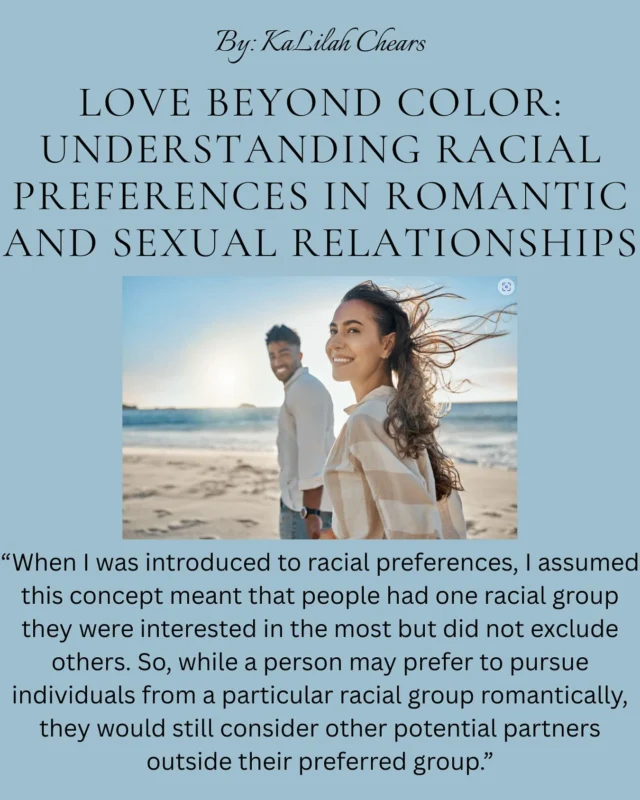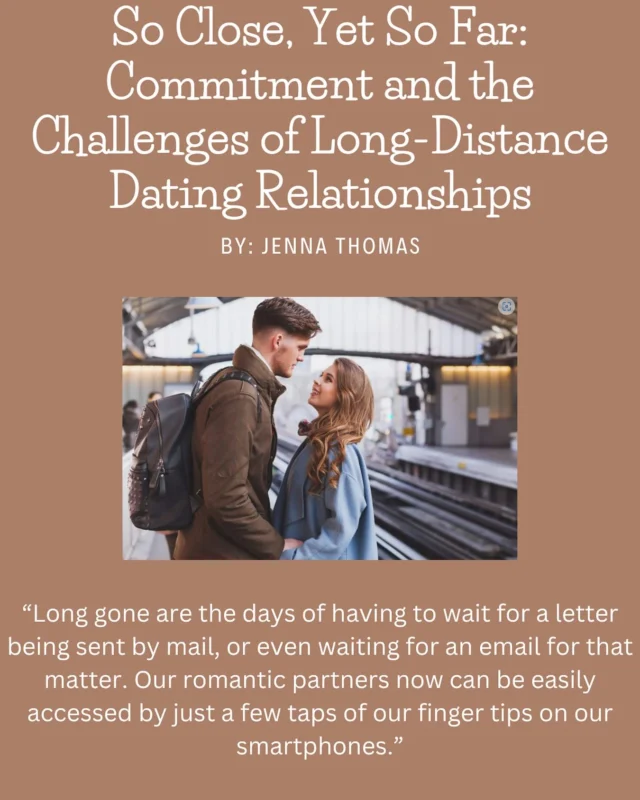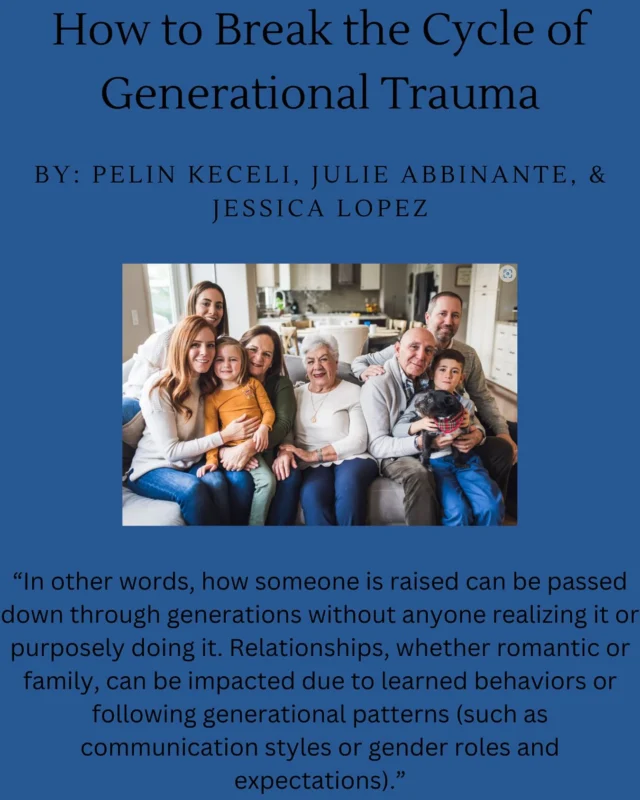Has your romantic partner ever forgot that they had a date planned with you? Or have you ever noticed your partner consistently having difficulty paying attention during a conversation with you? Does your partner ever get stuck daydreaming? Do they get so engrossed with an activity (video game, hobby, etc.), that they forget that you need attention too? It can be challenging and even frustrating if your romantic partner has been diagnosed with ADHD. For me, I was with a partner with ADHD from March 2022 until May of 2023. Although I had heard about ADHD before, I really didn’t know all its ins and outs until I started dating my former partner. Moments of forgetting to shut off lights, forgetting to wash the dishes, zoning out during a conversation, or even going to Texas Roadhouse without telling me we were meeting there were things we had to learn to adjust to while we were together. It was not easy by any means, but through this blog post, I hope to help others who have partners with ADHD and realize that you and your partner can navigate your way through this and still have a happy and successful relationship with each other.
According to a program called Children and Adults with Attention-Deficit/Hyperactivity Disorder (CHADD), approximately 10 million adults have attention-deficit/hyperactivity disorder (ADHD). That is certainly a lot of people in the United States! But when being with a partner who has ADHD, you may struggle to communicate with them about the needs and expectations you have for the relationship. In this blog post, I will discuss what ADHD is, similarities and differences in men and women, the prevalence of child abuse and intimate partner violence, strengths and struggles in relationships with ADHD, and seven tips you can use to help your partner, help yourself, and help improve relationship satisfaction.
What is ADHD?
According to the American Psychiatric Association (n.d.), Attention-Deficit/Hyperactivity Disorder (ADHD) is considered one of the most common mental disorders to affect children. Most people are diagnosed with ADHD at the age of 7, which usually follows them into adulthood. Symptoms of the condition can include:
- Inattention (not being able to keep focus).
- Hyperactivity (excess movement that is not fitting to the setting).
- Impulsivity (needing to act on something in a hasty manner as soon as it comes up).
Adults that have ADHD may experience things such as poor self-worth, sensitivity towards criticism, and increased self-criticism, possibly stemming from higher levels of criticism throughout life.
The American Psychiatric Association (n.d.) also mentions there are three types of ADHD, inattentive type, hyperactive/impulsive type, and the combined type. The inattentive type has individuals with ADHD feeling easily distracted, having problems organizing tasks and work, and often losing things needed for daily tasks. The hyperactive/impulsive type has individuals with ADHD feeling fidgety or tapping their feet, feeling “always on the go” as if a motor drives them, and having difficulty waiting in line. The combined type of ADHD is diagnosed when the individual meets the criteria for both types.
My past partner was diagnosed with the combined type of ADHD but experienced more symptoms of the inattentive type. Some examples of how he exhibited this were forgetting we had an event planned, losing his wallet and trying to find it before he walks out the door, or even spacing out when we have a conversation. Most people would find this kind of behavior annoying. But I believed and still believe in being a supportive and patient partner. I did this by helping him plan out when events are and reminding him, putting his wallet in a place that I know is visible so he can find it, and gently getting his attention back and asking what distracted him. Some people may find doing these types of things tedious and question why I did them, and that is because back then, I wanted him to be successful while still having ADHD. I constantly reassured him I wouldn’t leave him just because he forgot a date we may have planned or got distracted while I was talking. I didn’t see it as our relationship would fail just because he had ADHD.
The Similarities and Differences of ADHD in Men and Women
While there are not many similarities between men and women with ADHD, Watson (2022) explains that both men and women who have partners with ADHD can experience symptoms of Rejection Sensitive Dysphoria (RSD). This explains why some people with ADHD are very sensitive to what others think or say about them. RSD is not a medical diagnosis, but it helps describe certain symptoms associated with ADHD. According to Watson (2022), women with partners that have ADHD may experience low self-esteem, intense emotional reactions, people-pleasing, and codependency. For men who have partners with ADHD, this can show as anger, seeming insensitive to other people’s emotions, and the needing to be right or prove others wrong.
I believe it is also essential to know that there are differences between men and women having ADHD. Symptoms can differ based on a person’s gender, age, and other factors. According to the Centers for Disease Control and Prevention (n.d.), boys (13%) are more likely to be diagnosed with ADHD than girls (6%). Understanding the differences between symptoms in both genders will be helpful for partners seeking to understand and help their partner.
Raypole (2021) states that women are less likely to be externally hyperactive and impulsive than men. Examples of internal hyperactivity in women include overthinking, intrusive thoughts, and negative self-talk. This means that women are less likely to show outward signs that they have ADHD. You may not even know they have ADHD unless they tell you. Men are more likely to show external behaviors such as hyperactivity, frequently losing items, and interrupting others during conversations.
In the past, my former partner told me that with his ADHD, he felt that people don’t understand him. He may randomly blurt out things but doesn’t mean to do it intentionally. What makes me happy is my past partner was never nervous to tell me how he had ADHD. But to the outside person, he would worry that he would come across as a slob or doesn’t care about picking things up or doing the dishes. Sometimes he forgot what he was doing.
After my relationship with my partner ended, I reflected on how he told me his ADHD worked. From how he used to explain it, it was like needing to do the dishes and then thinking about listening to podcasts while he did the dishes. Then he would go downstairs to grab his earbuds and realized he needed to check his email. So he would check his email, and then some time would go by, and he would think, “Oh, there was something I was supposed to be doing,” and completely forgot. Now, him forgetting was not intentional back then. It actually is part of a series of distractions that lead him off course. He started off needing to do the dishes but realized he needed earbuds and ended up checking his email in front of his computer. Now, there have been times when my former partner would be visiting at my apartment. I would ask him to do something like clean his dishes after he was done eating, or turning off the lights after using the bathroom, or helping me by taking out the trash when it is dark outside, and he totally forgets. But ADHD can make accomplishing chores a challenge! The partner who doesn’t have ADHD could become frustrated by frequently reminding their partner to help, while the other partner feels nagged rather than reminded. It is easy to see that this dynamic could generate intense frustration and resentment from both sides (CHADD, n.d.).
Child Abuse and Intimate Partner Violence Prevalence in ADHD Relationships
It has also been found that children diagnosed with ADHD are exposed to physical and emotional abuse more frequently than healthy children, whereas healthy children are exposed more to neglect (Gokten et al., 2016). An example of emotional abuse in a child with ADHD could be a mother or father telling their child, “You are stupid,” just because they could not remember something they were told to do. In addition, people with ADHD are more susceptible to emotional abuse because they are more vulnerable to gaslighting due to issues with self-esteem, difficulty in their past relationships, and feelings of guilt and shame.
It is essential to talk about the prevalence of child abuse in children who have ADHD because this could impact them as adults. For example, symptoms of ADHD have been associated with intimate partner violence (IPV), anger, hostile conflict, and low conflict resolution (Huynh-Hohnbaum & Benowitz, 2022). In addition, research shows that having experienced verbal, physical, or even sexual abuse from parents as children have been shown to predict the rate, recurrence, and severity of Intimate Partner Violence. Now, I do not want people to think or assume that just because their partner has ADHD or since they were abused as a child, they will do the things I am about to explain. However, I feel it is a great thing to touch on because the sad reality is that about 60% of participants with ADHD in a study had experienced neglect, and 35% had experienced psychological abuse (Hadianfard, 2014).
According to the CDC, Intimate Partner Violence (IPV) is abuse or aggression that occurs in a romantic relationship. IPV can vary in how often it happens and how severe it is. It can be one episode or multiple severe episodes over numerous years. IPV includes behaviors such as physical violence, sexual violence, stalking, and psychological aggression. Both men and women with ADHD, particularly those with elevated inattention and hyperactivity/impulsivity symptoms, report lower romantic relationship satisfaction and have more significant difficulties resolving conflicts than those without ADHD. This could lead to why people with ADHD can be seen as both victims and perpetrators of Intimate Partner Violence.
A study by Wymbs et al. (2017) used 565 18 to 25-year-old men and women at a public university to measure the risks of ADHD on IPV and the prevalence of IPV perpetration and victimization. The study showed that 67.9% and 69.4% of the students reported perpetrating or being victims of at least one psychological IPV behavior in the past year. As well as, fewer students reported being the perpetrator or victim of at least one psychological IPV behavior in the past year. I chose this study to highlight because, as a college student, I did not know much about ADHD until I got to college. It is essential to understand that IPV is especially prevalent among college-aged adults. About 47.1% of women and 38.6% of men experience their first victimization between the ages of 18 and 23. However, just because you or your partner have experienced child abuse or neglect does not mean your relationship is doomed for failure. You can both get the help you need to be resilient and think about how you want to make this relationship positive despite what you may have endured as a child.
Biggest Strengths & Struggles in Relationships with ADHD
Every relationship has its strengths and struggles. Much research points toward adults with attention-deficit hyperactivity disorder (ADHD) having short-lived and discordant romantic relationships (Wymbs et al., 2020). However, that does not mean partners without ADHD cannot choose to find ways to help our partners who struggle with ADHD. I feel the struggles most people face when having a partner with ADHD is realizing you may need to take on more of the planning or take on constantly reminding your partner of specific tasks or chores, and overall just being patient with your partner.
Marital and familial relationships of individuals with ADHD are characterized mainly by dissonance and negative interactions. Research shows that people with ADHD struggle to fulfill familial obligations (Oncu & Kislak, 2022). During an argument or disagreement, individuals diagnosed with ADHD are more furious and impatient, have a lower frustration threshold, weaker empathy skills, and difficulty having appropriate reactions due to the features related to ADHD. So those with ADHD display conflict resolution behaviors that are likely to negatively influence the adjustment of their relationships (Oncu & Kislak, 2022).
Interestingly, research shows that adults with ADHD often hyperfocus on romance. When I discussed this in the past with my partner, he mentioned that he did not date me because of the hyperfocus symptoms that came along with his ADHD. But for some couples, the partner affected by ADHD can focus intensely on the romance and the new partner. This then becomes a message that the new partner is the center of the person’s world. This typically generates feelings of connection, love, and validation, and the relationship grows quickly. And then, BAM! The person’s focus shifts just as quickly, and the new partner may be thinking to themselves: “What just happened???”. This doesn’t mean your partner is falling out of love. They may have just found something else their ADHD drew their attention to. This is okay!
Some of my past partner’s hyperfocuses were working out, eating healthy, and especially history. He used to tell me he dated me because he loved me. He believed that when people label hyperfocus’ as a bad thing, it draws away from the fact that the person is dating you because they love you. It instead replaces the thought of love with the idea that your partner with ADHD is only dating you because they crave that romance with someone. But he told me as much as he loved our romantic chemistry, he dated me for the sole purpose that he loved me and cared about me. He knew even if he wasn’t giving his attention to me 24 hours and 7 days a week, I was okay with that.
According to CHADD (n.d.), another struggle for partners who have ADHD is social skills. ADHD can decrease your ability to regulate your emotions and reactions toward others. This can be something such as being prone to intense reactions when they are frustrated and likely to lash out at others, especially those close to the person. When partners have ADHD, their sense of empathy is negatively impacted. This can be because of low dopamine levels in the brain, which is common in those with ADHD. A study by Sáez et al. (2015) showed how dopamine plays a role in the level of empathy a person has. This is because Dopamine is causally associated with human prosocial behavior. When I was with my partner, he had moments where he could have been shy, but overall he was pretty social. When we had arguments, he was also more of a thinker before he said something. But we could usually see each other’s sides by the end of the conversation. He focused on taking his time to respond to intense reactions from others as he did not want to say anything he regrets.
Overall, with my former partner, I noticed that his biggest struggles came from planning or forgetting a task/chore I asked for his help with. This doesn’t mean he was ignoring me on purpose. I am a big planner and have an organized way of doing tasks or chores. So, it never bothered me to remind him of specific dates and times for events or to get him back on track with the task or chore he was doing. My former partner’s biggest strengths were having the biggest heart and being courteous to others. He was also empathetic and did his best to understand others. When he realized he forgot to do something, he apologized and made the most significant effort to complete the task right away, even if it required me to remind him a few times.
What Can You Do to Help?
You may be thinking to yourself that this information is beneficial. But what can you do to help your partner that has ADHD? Here are 7 tips and tricks that I have used that others that may be helpful.
- Be Supportive and Communicative. One of the first ways we can help a partner with ADHD is by being supportive. This means taking the time to understand how your partner feels and figuring out what you can do to help them. This way, it will help you and your partner navigate what could be a stressful time with ADHD. For me, this included sitting down with my partner at the time we were dating and discussing what was frustrating him and finding the qualities in myself that I can use to help him with that. An example is something similar to what I stated above. My past partner was not the best at planning things. But, at the same time, I was and still am a big planner. So I took on more of the planning aspects of our relationship while it lasted, but sometimes my former partner would also plan things for us.
- Remember that you are a partner, not a parent. Remember, you and your partner are a team. Instead of coming across as frustrated or exasperating (ex: “You forgot again?”), encourage your partner. According to Healthline (2021), instead of saying, “I can’t believe you didn’t finish! We agreed we’d get all the chores done today. You could have finished if you’d stopped daydreaming. I guess I’ll take care of them now.” You should instead say something like, “We did a great job today! We finished almost everything on our list. I want to enjoy our time off, so why don’t we get up early to wrap up the last few together?” This way, the tasks can still be done. They may need to be done differently than what you are used to. You should also find things to laugh about and celebrate about your relationship (CHADD, n.d.). Sometimes, when my former partner forgot a simple chore, or I forgot a simple chore, we couldn’t help but laugh! Forgetting things is totally normal and nothing to be ashamed of.
- Emphasize your partner’s strengths. When planning a list of chores, look for areas your partner has strength in. According to Healthline (2021), this would be something like if they are a great cook but have trouble getting started with cooking a meal on time. In this situation, you could tell them how excited you are for them to cook and ask if there is anything you can do to help your partner get started.
- Learn to let some things go. Let’s face it. Not every single relationship is perfect. You and your partner will have ups and downs throughout your relationship. But instead of always focusing on what always goes wrong, try to recognize the things you value and appreciate about them.
- Learn to recognize when you or your partner is in an “ADHD-charged moment.” CHADD (n.d.) mentions that these situations may arise when your partner is overwhelmed, frustrated, or running on stimulus overload. It can happen anytime, but often it occurs in the evening or late at night after a stressful day. These may not necessarily be the best time to bring up certain subjects that may lead to a heated discussion. CHADD (n.d.). also mentions that even though your partner may have hurt your feelings and made you feel unloved by apparently not listening to you. But the fact is that they may not even be aware of how they are affecting you.
- Establish your own support system for the relationship. For me, my support system started early on when my former partner and I had our relationship. I was already seeing a licensed Marriage and Family Counselor before my former partner, and I started dating. I spoke to her about how my partner had ADHD, and she taught me one of the best things I could do for myself so I didn’t get overwhelmed was to take care of myself. I feel fortunate for the fact my patience tolerance is very high. So I did not yell at my partner about a task not getting done or about him forgetting something. Sure, everyone has the right to get upset about some things. But what matters is what your plan is to do for yourself so you can help your partner. For example, if you and your partner have tried to talk about solutions and things are getting too hard to handle, it has been well-documented that couples therapy (e.g., behavioral couples therapy) can effectively address psychopathology within the relationship (Oncu & Kislak, 2022). This means you and your partner can have a professional help you navigate your relationship with your partner who has ADHD. This way, you can communicate your problems to one another with extra support to guide your way to a successful relationship!
- Take care of yourself! Understandably, you may find times you are stressed out with your partner. Especially when you have to repeat the same thing you just said to them for the 5th or 10th time and the task has not been done, or perhaps you feel overwhelmed by having to take on the extra planning since you know your partner isn’t the best with planning. What is important is taking your “me” time, in other words, taking care of yourself! This is when you get to go to the gym and workout, listen to some happy music, go for a walk, or find something you love to do that you can be by yourself. Realizing that you are doing the best you can and taking care of yourself will help you effectively help your partner who has ADHD. Research shows that living with a spouse diagnosed with ADHD may be challenging (Wymbs et al., 2020), but you can do this!
Having a partner with ADHD taught me so many things while I was in the relationship. It was most certainly challenging at times, but that didn’t mean I didn’t care about my former partner any less. My former partner and I both strived to do the best we could for each other, and we tried to work on understanding and appreciating each other’s perspectives. Even though our relationship didn’t work out, I am glad I gained the knowledge I did about ADHD. I hope this blog post can help other people who may have partners with ADHD to realize they can still have a vibrant and satisfying romantic relationship. By striving each day to be united as a couple, you can meet the challenges together that are faced by ADHD.
References
- American Psychiatric Association. (n.d.). What is ADHD?
- Centers for Disease Control and Prevention. (n.d.). What is ADHD?
- Centers for Disease Control and Prevention. (n.d.) Intimate Partner Violence Fast Facts
- CHADD. (n.d.) ADHD Complicates Romance
- CHADD. (2018). Overview
- Gokten, E.S., Duman, N.S., Soylu, N., & Uzun, M.E. (2016). Effects of attention-deficit/hyperactivity disorder on child abuse and neglect. Child Abuse and Neglect. (62) 1-9.
- Hadianfard, Habib. (2014). Child Abuse in Group of Children with Attention Deficit-Hyperactivity Disorder in Comparison with Normal Children.
- Raypole, C. (2021). Have a Partner with ADHD? 10 Ways to Offer Support.
- Huynh-Hohnbaum A.T. & Benowitz S. M. (2022). Effects of adult ADHD on intimate partnerships. Journal of Family Social Work.
- Jordan, M. (2022). Adult ADHD: Statistics and Facts. Web MD
- Oncu B.K. & Kislak, S.T. (2022). Martial Adjustment and Marital Conflict in Individuals Diagnosed with ADHD and Their Spouses.
- Sáez, I., Zhu, L., Set, E., Kayser, A., & Hsu, M. (2015). Dopamine Modulates Egalitarian Behavior in Humans. Current Biology.
- Wattson, S. (2022). What is Rejection Senstive Dysphoria?
- Wymbs, B.T., Canu, W.H., Sacchetti, G.M., Ranson, L.M. (2020). Adult ADHD and Romantic Relationships: what we know and what we can do to help. Journal of Marriage and Family Therapy, 47, 664-681.
- Wymbs B.T., Dawson, A.E., Suhr, J.A. Bunford, N. Gidcyz, C.A. (2017). ADHD Symptoms as a Risk Factors For Intimate Partner Violence Perpetration and Victimization. Journal of Interpersonal Violence
Discover more from Decide To Commit
Subscribe to get the latest posts sent to your email.












